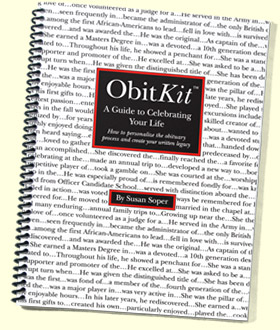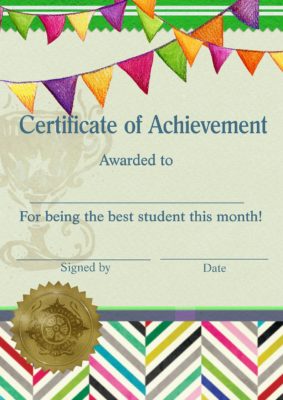
I notice more and more—how shall I put it?—dead people have pre-written their own obituaries. This may be a morbid subject for some, but when you reach a certain age, you know what is coming and you recognize it could be any time. Any minute, really. So why not write your own obit?
The Internet provides lots of help. Check out, for example, the Obit Kit. Be careful about who sees your pre-written obit, though. Some have inadvertently been published before their “due dates,” as in the case of Kirk Douglas.
In my thirties or forties, death seemed like some far-off thing in the future, not seeming very real at all. Then suddenly, I’m older and attending funerals of friends and relatives who are my age.

Reading my friends’ obituaries recently put the fire under my feet to think about what my own might say. Or what I would like my own to say. The more I thought about it, the more I realized I had some things to do if I wanted my obit to be anywhere near what I was thinking of writing. Kind, generous, and good-natured might take a little work! Would a few more awards and honors be possible before the end? I haven’t had many of those since my school days.
The obits pre-written by the deceased seem so much more personable than the ones that are hurriedly done by relatives to get them into the newspaper before the funeral. Not that I think loved ones can’t write a good obit, but it is a stressful time for them, with a deadline (pardon the pun). And in my opinion, anything that can alleviate stress on a bereaved family would be a good thing. Plus, who knows me better than me? The Obituary Guide has it all, and Poytner’s News University even offers a course if you’d like to make writing obits part of your life’s work.
I came up with a few “rules” for writing my own obit:

- Comment on my death, and put some humor in it.
- Focus on life, and don’t be boring. Show, don’t tell.
- Use all the senses while answering those W’s—the where, why, and when.
- Don’t be too wordy, no more than 500, but no less than 150.
- Include a 3- or 6-word summary near the end to make it memorable.
- Ask relatives for input . . . at least make them feel included.
I’m not sure all of these rules will work, especially answering the W’s. Some of those may need blank spaces. After all, how can I know the where, why, and when. But at least I can write the lead, and the others seem doable.
In the flowers or donations area, how about planting a little flower or bush or tree in a yard in my memory, or visit an older acquaintance not seen for awhile, or do something nice for a stranger in lieu of flowers.
I belong to a “writing our life history” group that meets at Millhopper library, where we share stories—no critiquing, just lots of fun. It’s my favorite outing of the month. I think I’ll try out my obit on my life-history friends, once I’ve written it, that is.

Joan H. Carter
You made me wonder what I’d put in my obit. I’d have to figure out who I am, and I’m still working on that. Solving that puzzle is probably a good objective to strive for. I like your idea of working to be the person you want your obit to describe!
Connie Morrison
If we could accomplish that, an obit might not be necessary.
Marie Q Rogers
Good food for thought. Connie, I think you can safely put “kind, generous, and good-natured” in your obit today.
Connie Morrison
Oh, you are so kind, but I think you may be talking about someone else.
Patsy Murray
Love your humor, Connie. Yes, great idea to write one’s own obit. If relatives don’t agree, they can always change it. Trying to be the person you want your obit to describe is like trying to be the person your dog thinks you are.
Connie Morrison
or kitty…or maybe not considering the nature of cats.
Ann-Marie Magné
Interesting – I was thinking of my own obit a few days ago. I’ve actually done a few things in my life just because they would make good reading in that final column, but I’ve decided to leave out everything braggy and self-aggrandizing. Instead, I’ll write who I was married to – just the second one, not the first – and the names of my daughter and step-kids, and the number of grandchildren without naming names. And with any luck, I can add the number of great-grandchildren. The people who know me will know what I have done. The others – so what. And of that first group, I hope someone will say, “She done good.”
Connie Morrison
She definitely done good!
Bonnie T. Ogle
I love this! Having lost my loved one in a sudden accident, I am keenly aware that the end could come at any time, and yes, very stressful for the living. I’ve actually made notes, but you’ve encouraged me to “flesh them out” while I’m still in the flesh! And I love adding a little humor. Makes it (and you) more memorable.
Connie Morrison
Yes, I agree, Bonnie. If you don’t have a sense of humor, you may as well lie down now.